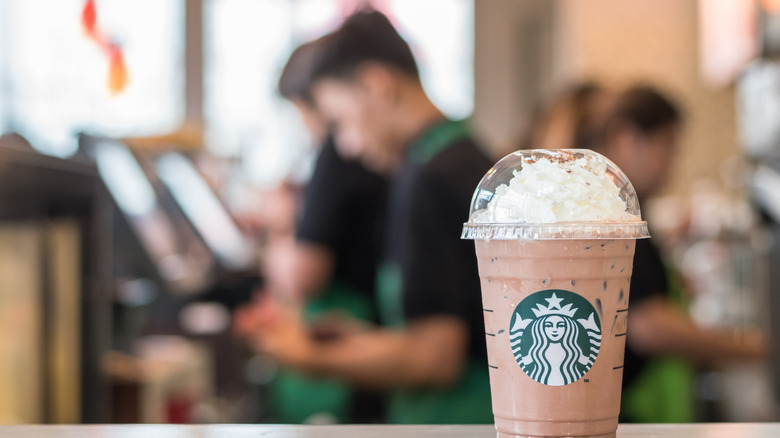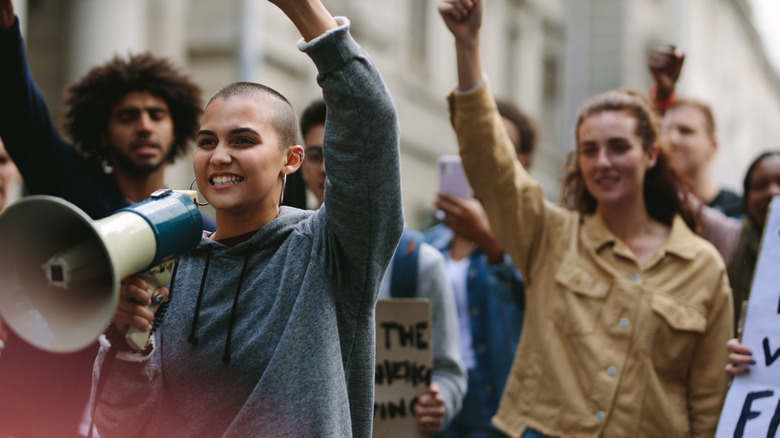The Reason Starbucks' Unionized Employees Just Staged A Walkout
The month after a Buffalo, New York, Starbucks unionized in the U.S., its employees walked out this week over a disagreement with how the company is handling workplace safety amid the Omicron variant, according to Reuters. It is the only corporate-owned unionized Starbucks in the country. In a statement published to Twitter, Starbucks Workers United explained that with one-third of the Elmwood Avenue store's workforce in isolation after being exposed to or becoming ill with the virus, they were severely understaffed and overworked. The union also expressed concern about a lack of enforced COVID-19 safety measures in the workplace.
Workers raised another issue: Despite a local mask mandate, Starbucks employees are instructed not to refuse service to unmasked customers. "In fact, I could actually be disciplined for refusing to serve somebody," Michelle Eisen, a barista of 11 years, told The Buffalo News. The union is also advocating for hazard pay, as well as covered masks and testing for COVID-19. Starbucks corporate has maintained that it has supported worker safety over the last two years. "Throughout the pandemic we have met and exceeded all CDC and expert guidelines for safety, and we've supported partners with vaccine pay, sick days, and isolation-pay," Starbucks spokesperson Reggie Borges told Reuters. To support the Buffalo Starbucks workers who walked out, the union created a GoFundMe page stating, "Elmwood partners will return to work when we feel our store is fully staffed and conditions are safe."
There is currently a surge in Starbucks unionization efforts
While Buffalo's Elmwood Avenue Starbucks store is the first in the country to have unionized, it may not be the last. Business Insider recently counted 10 Starbucks stores pushing for a union, including locations in Seattle, Chicago, and three more in Buffalo. "Buffalo is that first domino, and we hope that the Coolidge Corner and Allston stores can be the next domino here in Boston," Kylah Clay, a barista trying to organize a Boston-based unionized store, told GBH.
These unionization efforts are occurring within the context of more strikes — and more public acceptance of strikes. "The pandemic really shook up what workers want and what they expect from a job," Lane Windham, a labor historian at Georgetown University, told The Washington Post. "We're living in a moment of a new heightened awareness of workers' rights." It seems that for many food workers, feeling disposable while being placed in "essential" positions has made them question how much their companies are supporting them.

